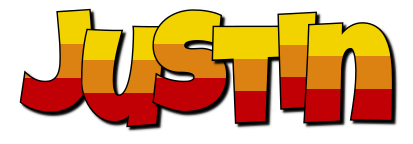Bitcoin Futures Trading is the process of buying and selling digital currency contracts. It occurs on the last Friday of the month. There are two basic types of cryptocurrency futures. Perpetual contracts and spot contracts. The main difference between the two is that perpetual contracts are perpetual and do not expire. Major crypto exchanges have adopted perpetual contracts as they help to keep the prices close to spot. Traders pay each other based on their positions and the price difference between their perpetual contracts and spot prices. Longs and shorts are paid for their open positions.
Traders buy
When it comes to the futures market for Bitcoin, there are several risks to watch out for. First of all, futures trading involves leverage, which increases the risk of loss. While leverage can be beneficial for some investors, it can also ruin a person’s financial situation. Traders should be aware of the risk involved and how it may affect their portfolio. Bitcoin futures trading also have several advantages over the spot crypto market, such as greater price transparency and enhanced security. The futures market also offers the option of short selling, which can be beneficial for some investors. But it is important to understand that the risks of trading futures are also higher than those involved in the spot market. In addition, investors must be careful about possible price manipulation.
A trader may enter into a futures contract thinking the price will rise by the end of the month. However, he might also be concerned about a possible price drop and wants to protect his position from such an eventuality. In such a scenario, the trader could enter into a futures contract to sell one Bitcoin for $10,000 at the end of the month. The remaining two Bitcoins can then be sold for a profit, making him a winner. However, if the price falls, the trader would lose money. In this way, hedging minimizes the risk of losing a substantial amount of money, but also limits the profits a trader can get.
Traders sell
Bitcoin futures are a way for traders to invest in the digital currency. They are a type of financial contract that is bought and sold based on an agreed price at a later date. Traders buy Bitcoin futures contracts by entering into short or long positions. For example, a trader may buy a contract for one bitcoin at a certain price, such as $5,000, and sell it at a later date for $20,000. Depending on the market, this may generate a profit or a loss.
Traders sell Bitcoin futures when they believe that the price of Bitcoin will go up or down. The price fluctuates frequently, so a futures contract is a good way to make money with the cryptocurrency.
Contracts expire on the last Friday of the month
Bitcoin futures trading is a commodity regulated by the Commodity Futures Trading Commission (CFTC). They are traded on the Chicago Mercantile Exchange and are settled in U.S. dollars. The BTCC https://www.btcc.com/ offers monthly, quarterly, and yearly contracts. The contracts expire on the last Friday of each month.
On Friday, major crypto options exchanges will settle billions of dollars of bitcoin options. However, analysts do not expect the monthly expiration to affect bitcoin’s price. Regulatory concerns and macro risks have kept the cryptocurrency under pressure.
Traders leverage good information
Trading Bitcoin futures involves a contract to buy bitcoin at a specified price on a specific date. The underlying asset is bitcoin, and traders leverage good information to predict its price movement. The trade can be risky, because the market can be volatile. However, if done properly, investors can take advantage of a positive market trend and make a substantial profit.
The process of trading futures contracts involves several steps. The first step is setting up an account with a broker. The next step is to obtain trading approval from a trading service provider. This approval is based on your experience and funding requirements.

